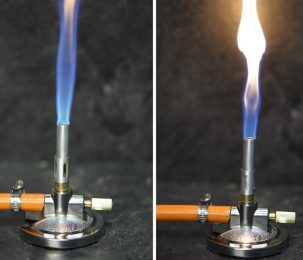Vital energy

In theory, it is easy to obtain energy simply by eating and doing sport;
However, it is important to bear in mind that a person who is ill does not have the same energy and physical capacity as a healthy person. Therefore, it would be unrealistic to expect someone who is ill to be able to run a marathon. In addition, when we are sick, our body does not have enough oxygen to carry out all the processes necessary to strengthen our immune system.
Interestingly, microbes and viruses have a capacity to multiply much faster than our immune system can fight them off. This is due to a process called phagocytosis, in which immune system cells attempt to eliminate infectious agents through oxidation. However, this race against time can be complicated, as micro-organisms can multiply rapidly.
To better understand this concept, we can make a comparison with the flame of a fire. If we look at a burner flame, we will notice that if there is enough oxygen present, the flame will be bluish and much hotter than a yellow flame that lacks oxygen. Our body uses oxidation as a mechanism to generate energy for optimal combustion.
In short, when we are sick, our body faces challenges in terms of both energy and oxygen. It is important to take care of our health and support our immune system to cope efficiently with infections, whether viral or bacterial.

At the same time, oxygenation helps to maintain the acid-alkaline balance necessary for proper functioning. It is also important to note that the red blood cells or red cells in the blood are responsible for transporting this valuable oxygen to all the cells in the body. However, there is another substance capable of carrying out this vital function: chlorine dioxide.
Chlorine dioxide disolved in water is known as an ionic solution in its simplest form, has the ability to store oxygen as well as red blood cells. It also, like blood, releases this oxygen into the more acidic areas of the body.
But how does it do this?
During the oxidation process, the chlorine dioxide molecule is broken down into two essential components: salt and oxygen. This disintegration generates a large amount of electrochemical energy that is extremely beneficial to the body. This energy not only helps to eliminate acidic pathogens in our body, but also converts them into a kind of alkaline “ashes”.
It is important to note that our cells are not affected by this process, as they have a natural defence called glutathione, and being all connected are able to dissipate electrical charges and protect themselves from damage. In this way, we can affirm that chlorine dioxide, like red blood cells, plays a fundamental role in the transport and release of oxygen in our body increasing charges, thus contributing to maintaining an acid-alkaline balance and promoting our general well-being.


